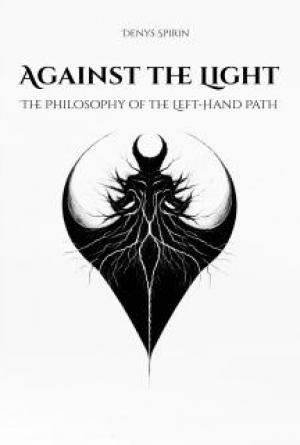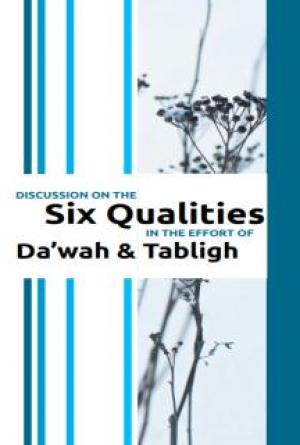Two Prophecy Booklets
By Anthony Dessay
Licensed by:
Anthony Dessay (2018)
Creative Commons: Attribution 4.0 International
Old Testament Scripture is taken from the NEW AMERICAN STANDARD BIBLE® (NASB), copyright © 1960, 1962, 1963, 1968, 1971, 1972, 1973, 1975, 1977, 1995 by The Lockman Foundation. Used by permission.
New Testament Scripture is taken from the Analytical-Literal Translation of the New Testament: Third Edition (ALT3). Copyright © 2007 by Gary F. Zeolla of Darkness to Light ministry. Previously copyrighted © 1999, 2001, 2005 by Gary Zeolla.
Before getting started, let’s review a few notes that will help make sense of these booklets…
*This work mostly uses British spelling, except for the quoted material, which often employs U.S. spelling.
*The Old Testament quotes are from the NASB and the New Testament quotes are from the ALT3.
*“LORD” or “GOD” signifies the personal name of God, often rendered Jehovah.
*The ALT3 distinguishes plural second person pronouns from singular ones by means of an asterisk (*).
*Divine pronouns are normally not capitalized, unless they appear that way in Bible versions or other quotes.
*Words that appear in brackets within quotes are not found in the original texts, and were added by the translators or are my personal comments, etc.
[Jump to booklet #2]
Pim Fortuyn
and Bible Prophecy
by Anthony Dessay
Table of Contents
I. Introduction: Pim Who?
II. The Theology of 666 (Old Testament)
III. The Theology of 666 (New Testament)
IV. Conclusion: The Resurrected Antichrist
V. Citations
I. Introduction: Pim Who?
The following is from an article published by The Independent back in July 20, 2002…
In life, Pim Fortuyn, the flamboyant right-wing Dutch politician who was murdered in May, was a mass of contradictions.
He championed Dutch liberal traditions such as the legalisation of drugs and prostitution and wanted to be its first openly gay prime minister. Yet he objected to Islam, and his only policy was to end immigration.
In death his contradictions continued. The man who won his party a share of power on the strength of keeping foreigners out of Holland was laid to rest yesterday on foreign soil—near his holiday home in north-east Italy—in accordance with his wishes.
Fortuyn, 54, was shot six times in the chest and head on 6 May, days before the Dutch general election, by an animal rights extremist. He was buried temporarily near his home town, Driehuis, near Amsterdam, while legal obstacles to his interment in Italy were overcome.1
It’s been over fifteen years since a controversial political figure was purportedly gunned down outside a radio station in Hilversum, a city in the Netherlands. He was known as Pim Fortuyn. His legal name was Wilhelmus Simon Petrus Fortuyn. He proved to be a frontiersman for a new right-wing that has emerged in the West. He bucked the trend when it came to typical Judeo-Christian morality, yet embraced paltry “conservative” values such as nationalism and the inaccurate castigation of Muslim immigrants. The Dutch figure who seemed to be an odd fluke on the world stage a decade and a half ago turned out rather to be a stunning prototype.
As I’ll reveal in this booklet, I have Biblical reasons to believe that Pim may be the world ruler known as the book of Revelation’s “beast out of the sea” (popularly called “the Antichrist”). I understand that sounds completely insane. All the same, please humour me anyway. Even if Pim Fortuyn is not the “Antichrist,” I think he casts many important shadows that could help us understand this coming prince better—most important of which concerns the famous number from the book of Revelation….
…It is the number of a person. And its number is six hundred sixty-six.
II. The Theology of 666 (Old Testament)
God, the ever-existing, all-powerful, sole deity (although Triune in nature), created the universe and everything in it. On the last day of his creating and forming he brought forth man and woman. He gave them everything for life and happiness, and also issued one prohibition. Because of this, the woman and man eventually ceased to believe that God had given them everything for life and happiness. They thought the stature of their lot would be improved if they transgressed and partook of the prohibited tree. It wasn’t. Instead of being brought to the heights of heaven, their sin plunged them and their descendants into a misery-laden cycle of sweat, thorns, subjugation, pain, and death.
After their separation from God, some humans clung to his promise of redemption through faith, and others went about seeking to improve their present state by both hook and crook. Eventually society became more like the rebels, and faithfulness became scarce in the earth. At this time God summoned Noah and his family to go aboard the ark, and the deluge of annihilation was sent to wipe the slate of sinfulness. Noah and his clan trod upon the dry land as a new first-family, yet they still bore the image of their original fallen forebears.
The human race began to repopulate the planet and the same corruption ensued. However, instead of destroying the inhabitants of earth again, he rather called one out of the newly-founded Babylonia. That man was Abram/Abraham, and his descendants and prototypical deeds are what make up the majority of the Bible.
He was called forth from a place of prosperity and idolatry and was led to be a stranger in the land of Canaan. Being a foreigner, he was completely dependent upon God for his sustenance. By faith he trusted the Almighty to preserve his life, and believed that the strange land of his sojourn would ultimately become a familiar home to an innumerable offspring.
Abraham begat Isaac, and Isaac begat Jacob and Esau. Because of the deceitfulness he practiced against his brother, Jacob felt forced to flee back to distant relatives. These relatives were much more in keeping with the lifestyle that Abraham left behind years before. In fact, one of Jacob’s newly acquired wives—Rachel—stole household gods from her father when the family decided to return to Canaan.
As the family grew, idolatry became a bigger problem. Before approaching God in gratitude for his sustaining graces, Jacob tried to set his household in order. He commanded them to deal with this issue…
Then God said to Jacob, “Arise, go up to Bethel and live there, and make an altar there to God, who appeared to you when you fled from your brother Esau.” So Jacob said to his household and to all who were with him, “Put away the foreign gods which are among you, and purify yourselves…” -- Genesis 35:1-2
Although the family was obedient at that moment, we’ll soon see that this virtuousness wouldn’t last. After all, idols and various gods were seen as indispensable means of wealth and security. They were beneficent good-luck charms in the eyes of their possessors, but pernicious trinkets of blasphemy in the eyes of the all-knowing God.
Digressing, Jacob’s descendants would prosper after resettling in Egypt, and would become known as the nation of Israel. They would eventually be called out of Egypt by God, led through the wilderness, and brought back to the land of Canaan. Henceforth that land would no longer be called by that name, but it would rather bear the name of the people, Israel. God was proving faithful to the covenant made to Abraham, as a multitude of his offspring now resided on the Promised Land.
Although the people had been blessed via the faithfulness of God, they were still cursed via the primal carnality of Adam. From the outset and onwards, many from their midst looked to these idols for their welfare and livelihood…
I [God] said to them, “Cast away, each of you, the detestable things of his eyes, and do not defile yourselves with the idols of Egypt; I am the LORD your God.” But they rebelled against Me and were not willing to listen to Me; they did not cast away the detestable things of their eyes, nor did they forsake the idols of Egypt… -- Ezekiel 20:7-8
This was true in Egypt. This was true during their journey to Canaan (Amos 5:25-27). This was also true once they arrived in Canaan…
…They mingled with the nations and learned their practices, and served their idols, which became a snare to them. They even sacrificed their sons and their daughters to the demons, and shed innocent blood, the blood of their sons and their daughters, whom they sacrificed to the idols of Canaan; and the land was polluted with the blood. -- Psalm 106:35-38
The nation was preserved from God’s overflowing wrath because of his promises to Abraham, yet life in Israel would be marked by a constant ebb and flow of idolatrous imports.
Moses, the leader of the exodus from Egypt, died after bringing the people to the cusp of Canaan. Joshua was given the role of leader and led the army of Israel to subdue the land. After Joshua’s death, God would raise up a number of leaders, popularly known as the “judges.” There would be a cycle of idolatrous entropy during this era. God would allow their enemies to prevail, and then the people would call out to their forgotten Lord. In response to their pleas and misery he would send a judge to deliver the people and usher in days of greater peace and piety. With each cycle however authentic godliness became hazier.
In the midst of this period a certain town named Shechem rebelled against the memory of a divinely appointed judge. Previously, God had strengthened a young man named Gideon to be victorious over oppressors from the land of Midian. After his successful campaigns, he begat a large number of children. There were about 71 sons in all. After his death the people of Shechem didn’t wish to be influenced by the legacy of Gideon anymore. They rather rallied around someone who was more closely related to them. They gave him the green light to accomplish a felonious coup…
...They [the people of Shechem] were inclined to follow Abimelech, for they said, “He is our relative.” They gave him seventy [pieces] of silver from the house of Baal-berith with which Abimelech hired worthless and reckless fellows, and they followed him. Then he went to his father’s house at Ophrah and killed his brothers the sons of Jerubbaal [Gideon], seventy men, on one stone. But Jotham the youngest son of Jerubbaal was left, for he hid himself. -- Judges 9:3-5
Let’s linger here and consider some of the individual words from this text.
First of all, note that the name of Gideon is given as “Jerubbaal.” This was due to the circumstances that surrounded his initial calling to fight with the Midianites. The Lord told Gideon to deface an idolatrous monument to Baal, a pagan god. Because of this he received the nickname Jerubbaal, which signified that the false deity was unable to strive with him (see Judges 6:31-32).
Now, note that when the people of Shechem hired Abimelech (whose name means something like, “my father is king,”) they gave him money that had been stored in a temple consecrated to “Baal-berith.” In Hebrew, berith means “covenant.” The name “Baal” means “lord” or “master,” etc. So putting this all together, the verses from Numbers 9 above are pregnant with spiritual meaning. The sons of the man of Baal’s striving were killed by a kinsman of Shechem, being paid with the wages of the covenant made with a replacement of the true Lord.
History marched on. Eventually the people became sick and tired of the train of judges and decided they wanted a king instead. They thought this would give them more consistent security. The king would watch over their affairs and fight their wars. The first king of Israel was Saul. We’ll get back to him later (Solomon is our apex, and then we’re going to work our way back down the list of personages). His reign didn’t please God, and David, a shepherd-boy, was chosen as his replacement.
Regarding importance in Israelite history, King David would stand alongside Abraham. As Abraham had been given the promises of the land and numerous progeny, David had been given the regal covenant. His family would be the kingly house before God perpetually…
My covenant I will not violate [Lit profane], nor will I alter the utterance [Lit that which goes forth] of My lips. Once [Or One thing] I have sworn by My holiness; I will not lie to David. His descendants [Lit seed] shall endure forever and his throne as the sun before Me… -- Psalm 89:34-36
David’s first successor was Solomon. He is famous for being endowed with tremendous wisdom from God. He was also given splendour and honour, the likes of which are dreamlike in quality. His kingdom was nearly utopian. However, instead of relishing in the unique blessing of God, his heart turned towards the wealth and splendour. Through faithless lust the new Paradise of God turned into just another Babylon. Solomon hoarded wealth and wives contrary to the dictates of Moses (cf. Deuteronomy 17:17). These women turned Solomon to honour some of the vilest pagan deities imaginable. He even went so far as to personally erect idols.
In one of those touches of God’s noteworthy artistry, throughout this downward spiral of Solomon two contrary things were happening. While reading the history of this era of bounty it appears to be a tremendous success story, yet God was keeping track in a different way. Solomon was receiving gold at this time—a little here, a little there. The total from this period is eventually tabulated: 666 talents of gold (1 Kings 10:14). To any student of Bible prophecy, that number should ring familiar. It is of course the number of the Antichrist, as related in Revelation 13:18.
Right, so we’ve hit the apex. Let’s start sliding back down now. First, let’s revisit Saul, the first king. Just as the demise of Solomon led us to a mention of “666,” so did the coronation of Saul. After all, this king was a punishment from God due to the people’s apostasy.
God was not pleased with the populace for wanting a king. It was clear that a major part of their motivation was their lack of desire to live by faith. When the government isn’t perfect, your God better be. However, if you can achieve a perfect government, then who needs God? This has been the poison apple that Satan has peddled through many philosophers over the centuries. There is no perfect government. We are fallen and sin exists—as does entropy. The people sought a king because they weren’t seeking God…
Thereafter Samuel [the last of the judge-type] called the people together to the LORD at Mizpah; and he said to the sons of Israel, “Thus says the LORD, the God of Israel, ‘I brought Israel up from Egypt, and I delivered you from the hand of the Egyptians and from the power of all the kingdoms that were oppressing you.’ But you have today rejected your God, who delivers you from all your calamities and your distresses; yet you have said [to him], ‘No, but set a king over us!’ Now therefore, present yourselves before the LORD by your tribes and by your clans.” -- 1 Samuel 10:17-19
God made it clear to Samuel that Saul was to be the king, only they couldn’t find him. They asked the Lord of his whereabouts…
Therefore they inquired further of the LORD, “Has the man come here yet?” So the LORD said, “Behold, he is hiding himself by the baggage.” -- 1 Samuel 10:22
Now there’s nothing wrong with the NASB’s rendering of “baggage.” The Hebrew term keli can indeed be interpreted as such, and there are specific times when that would appear to be the meaning. However, the original Hebrew word is much broader in scope. The most common way the NASB renders keli is “utensils” (66 times).
Holladay says it means…
1. vessel, receptacle, gear…2. equipment, gear…3. implement…4. other objects: a) ornaments…b) clothes…5. weapons…6. vessel = ship… (pgs. 158-159)2
The Brown-Driver-Briggs lexicon gives as the primary definition, “article, utensil, vessel.” Then as a sub-definition it gives, “implement of labour, tool” (pgs. 479-480)3.
The word thus also means “tool.” It is used this way in 1 Kings 6:7, when Solomon is constructing the Temple of God in Jerusalem…
The house, while it was being built, was built of stone prepared at the quarry, and there was neither hammer nor axe nor any iron tool heard in the house while it was being built.
The Hebrew word keli isn’t rendered “tool” too often by the NASB translators simply because a description of such items doesn’t appear in the Bible very frequently. There are a couple of times the NASB translators render engraving/carving instruments as a “tool,” and once the Hebrew word for “sword” is rendered by the NASB translators as “tool.” That’s it. The subject rarely comes up.
Also, in modern Hebrew keli means, “instrument, tool, vessel.” 4
Now why am I going on about this? Well, if you were reading 1 Samuel 10 in Hebrew you would have come across the word keli, as we have pointed out. Then a couple of chapters later, we have Saul being completely rejected as king by God. He made a sacrifice of abomination to the Lord himself, contrary to every law and ordinance, as this was the prerogative of the Levitical priests…
But Samuel said, “What have you done?” And Saul said, “Because I saw that the people were scattering from me, and that you did not come within the appointed days, and that the Philistines were assembling at Michmash, therefore I said, ‘Now the Philistines will come down against me at Gilgal, and I have not asked the favor of the LORD.’ So I forced myself and offered the burnt offering.” Samuel said to Saul, “You have acted foolishly; you have not kept the commandment of the LORD your God, which He commanded you, for now the LORD would have established your kingdom over Israel forever. But now your kingdom shall not endure. The LORD has sought out for Himself a man after His own heart, and the LORD has appointed him as ruler over His people, because you have not kept what the LORD commanded you.” -- 1 Samuel 13:11-14
Recall that in the midst of Solomon’s demise, the number 666 was given. A few verses after Saul’s demise, there is a seemingly random list of tools…
Now no blacksmith could be found in all the land of Israel, for the Philistines said, “Otherwise the Hebrews will make swords or spears.” So all Israel went down to the Philistines, each to sharpen his plowshare, his mattock, his axe, and his hoe. The charge was two-thirds of a shekel [Heb pim] for the plowshares, the mattocks, the forks, and the axes, and to fix the hoes. -- 1 Samuel 13:19-21
Remember, God told Samuel that Saul was hidden in the midst of tools. As I’m sure you noticed, the NASB includes a footnote in this passage. The Hebrew term behind the phrase, “two-thirds of a shekel,” is pim. This is how a lot of modern translations read. They often render the word as “two-thirds of a shekel,” and then include the Hebrew original “pim” as a footnote. This is the practice of the English Standard Version, the Lexham English Bible, and the Holman Christian Standard Bible, etc. The New King James Version just uses “pim” in the text itself.
So modern scholarship believes that a “pim” was a stone/weight/coin worth two-thirds of a shekel. God told the people that the king of their apostasy was hidden among the “tools/implements.” Then shortly thereafter we’re given this list with “pim” in the middle. Just as Solomon’s demise was highlighted with 666, so was Saul’s highlighted with the idea of two-thirds, which can be seen as another way of expressing 666, being an endless string of sixes percentage-wise.
In general, 666 means a failed Messianic Kingdom; for this number in Revelation 13 is properly contrasted with the 1,000 year reign of Christ in Revelation 20. Remember what was going on with Solomon. He was no longer looking to the Lord but trusting in his wealth and idolatrous wives for love and blessedness. The by-product of this resulted in the ominous number. Saul likewise ceased to trust in the Lord. The army was deserting him, and he relied on his own wit and present need. He did something grotesque and blasphemous in order to remedy the situation. Again, this portentous number pops up.
Both Solomon and Saul had things to glory in. Saul could revel in being the first king chosen of God, and Solomon could point to his wealth and glory. Yet they both were dying inwardly, ceasing to rely on the Lord through faith.
III. The Theology of 666 (New Testament)
As we slide back down our list of accounts I’d like to include concurrent information from the book of Revelation, for the Bible itself is its own best commentary. As time went on and more of the Biblical books were written, what later writers penned was rarely in isolation. The authors of the latter books were constantly making references to things that had been written before. So does the last book in the Bible—the book of Revelation—shed any light on apostate kings and on Jotham, Jacob, the exodus, and Eden?
We’ve previously mentioned the fact that Solomon and Saul’s 666 is the same number given in Revelation for the Antichrist…
…No one is able to buy or to sell, except the one having the mark: the name of the beast or the number of its name…And its number is six hundred sixty-six. -- 13:17-18
Revelation chapters 13 and 17 give us the most detailed descriptions of his person and works.
Chapter 13 recounts that he will suffer a head injury and revive. He will be heralded as great and unstoppable. He will conquer the world, blaspheme the heavens, and force everyone to worship him. At the height of his wickedness an idol will be made in his honour that everyone will be forced to reverence. Moreover, people will have to get a mark of his name/number in order to take part in commerce.
Let’s look at a few specific passages from this chapter…
And one of its heads [was] as [if] having been slain to death [fig., mortally wounded], and its wound of death [fig., fatal wound] was healed. And the whole earth marveled after the beast. -- verse 3
Having witnessed a seven-headed beast arise from the sea, John (the author of Revelation) states that one of the heads was slain and then resurrected. Although there has always been a debate among conservative commentators as to the significance of the heads, the most natural sense is to understand them as referring to individuals. Paige Patterson, who has penned one of the best works on Revelation in my opinion (writing for the highly respected New American Commentary series), agrees. He believes the healing is a Messianic forgery…
One of the heads of the beast received a fatal wound, but this had been somehow healed…and so the beast miraculously lived, suggesting a deliberate imitation of the Christ... (pg. 177)5
The most respected Greek lexicon these days (A Greek-English Lexicon of the New Testament and other Early Christian Literature; aka, BDAG) translates the line







